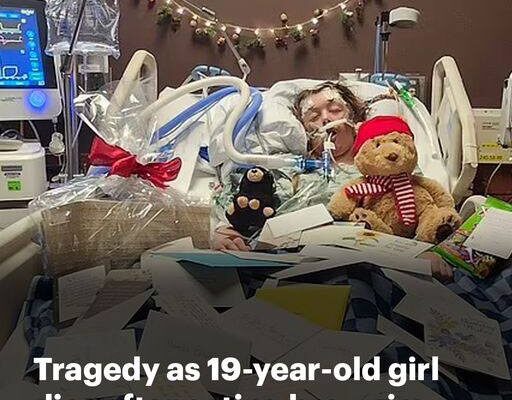Student Suffers Deadly Allergic Reaction After Being Given Brownie by a Friend
A seemingly ordinary gesture between friends turned into a critical reminder about food allergies when college student Hannah Glass unknowingly consumed a brownie containing peanut flour. The incident highlights the importance of vigilance with dietary restrictions and the hidden dangers of allergen exposure in unexpected places.
A Gift with Tragic Consequences

Hannah Glass, a freshman at Maranatha Baptist University, had a well-known peanut allergy. On November 4, 2024, a friend from a women’s group on campus gave her a brownie made with roasted peanut flour, intended as a gluten-free option for other students. Unaware of the hidden ingredient, Glass took a bite. “The second bite, she knew something was wrong,” her father, David Glass, shared.
Almost immediately, Glass began experiencing symptoms, including vomiting and hives. Despite administering her EpiPen and taking Benadryl, which temporarily improved her condition, the situation rapidly deteriorated. Within moments of lying down, Glass’s right lung collapsed, a rare but severe complication of anaphylaxis.
Paramedics arrived to find Glass in critical condition. Despite their efforts, her heart stopped for four minutes during resuscitation attempts. She was transferred from Watertown Hospital to Froedtert Hospital for advanced care. Along the way, she experienced seizures and significant brain swelling, leaving her on a ventilator with little hope of recovery.
Family’s Devastating Decision

Five days after the allergies, Hannah’s parents made the heart-wrenching decision to remove her from life support. “The majority of her brain was unmistakably, critically, and terminally damaged,” her family wrote in a Facebook post. The decision to donate her organs was a way to honor her legacy and give others a chance at life.
Hannah’s funeral was held at Calvary Baptist Church in Watertown and drew over 1,000 attendees. Described as “an exceptional student and a sweet-spirited servant in her church,” her loss has left an indelible mark on her university and community. A fundraiser on GiveSendGo has since raised over $28,000 to support her grieving family.
Hannah’s Legacy of Giving

Hannah’s organ donation saved four lives, offering a glimmer of hope in an otherwise heartbreaking story. Her family’s decision to share her story reflects their commitment to helping others learn from this tragedy and cherish the memory of their daughter.
This tragedy underscores the unpredictable nature of severe allergies and the need for vigilance. Hannah’s parents emphasized the importance of keeping EpiPens up to date and being mindful of hidden allergens. “We want to prevent other families from enduring the same pain,” her father said.
Hannah Glass’s story is a stark reminder of the dangers of food allergies and the importance of awareness and preparation. Her life and legacy continue to inspire her community, even in the wake of an unimaginable loss. By sharing her story, her family hopes to prevent similar tragedies and honor the remarkable young woman she was.
Read More: Is There a Link Between Medication Use During Infancy and Allergies in Early Childhood?



